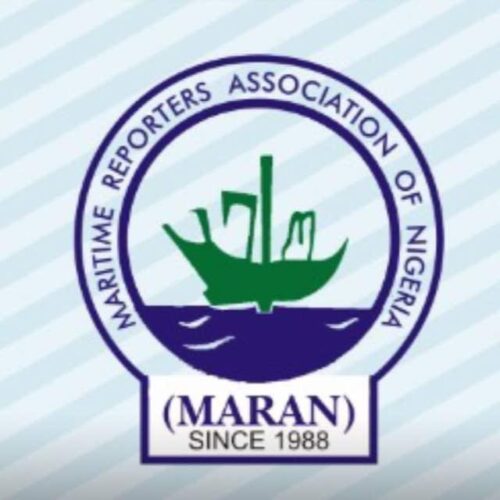MARAN Tasks Private Sector Firms on ESG Compliance Along Tin Can, Apapa Corridors
Nifemi Coker

The Maritime Reporters’ Association of Nigeria (MARAN) has called on both government and private sector operators along the Tin Can Island and Apapa port corridors to strengthen Environmental, Social, and Governance (ESG) standards amid growing environmental and health concerns in the area.
In a statement issued by the association in Lagos and signed by its President, Godfrey Bivbere, the association drew attention to what it described as “increasingly hazardous working conditions” resulting from airborne particles, allegedly linked to processing activities by companies such as Flour Mills Nigeria Plc, Dangote Group, Olam Agric, BUA Foods, and Honeywell Flour Mills.
“These particles, believed to originate from flour and other raw materials, are posing health risks to port users, workers, journalists, and security personnel who operate daily in the corridor,” the statement read in part.
According to the statement, individuals who frequent the area are increasingly reporting symptoms such as eye irritation, persistent coughing, and respiratory discomfort—indicators of declining air quality and potential long-term exposure risks.
“The Apapa and Tin Can corridors are strategic national assets and must reflect the highest levels of environmental and occupational health standards. The current levels of airborne dust raise red flags regarding worker safety, public health, and infrastructure sustainability.”
The association urged the Federal Ministry of Environment and the Lagos State Environmental Protection Agency (LASEPA) to immediately conduct an independent air quality assessment, with findings benchmarked against World Health Organization (WHO) standards.
It also recommended the deployment of mobile health clinics to provide relief and early detection for affected individuals.
MARAN emphasized that companies operating in the zone must take urgent steps to align with ESG principles by upgrading their environmental management systems.
It recommended the adoption of global best practices such as the use of enclosed silos, air filtration systems, and dust extractors to minimize pollution and safeguard both people and assets.
The group further raised concerns about the impact of dust accumulation on recently rehabilitated roads in the corridor, warning that unchecked environmental degradation could undermine major infrastructure investments and accelerate wear on public facilities.
“Compliance with ESG frameworks is no longer optional; it is a critical benchmark for sustainable port operations.”
“We expect stakeholders to demonstrate leadership by proactively managing their environmental footprint.”
Reaffirming its commitment to advocacy and stakeholder engagement, MARAN said it would continue monitoring the situation and collaborating with relevant institutions to ensure that port corridors remain safe, resilient, and environmentally compliant.






